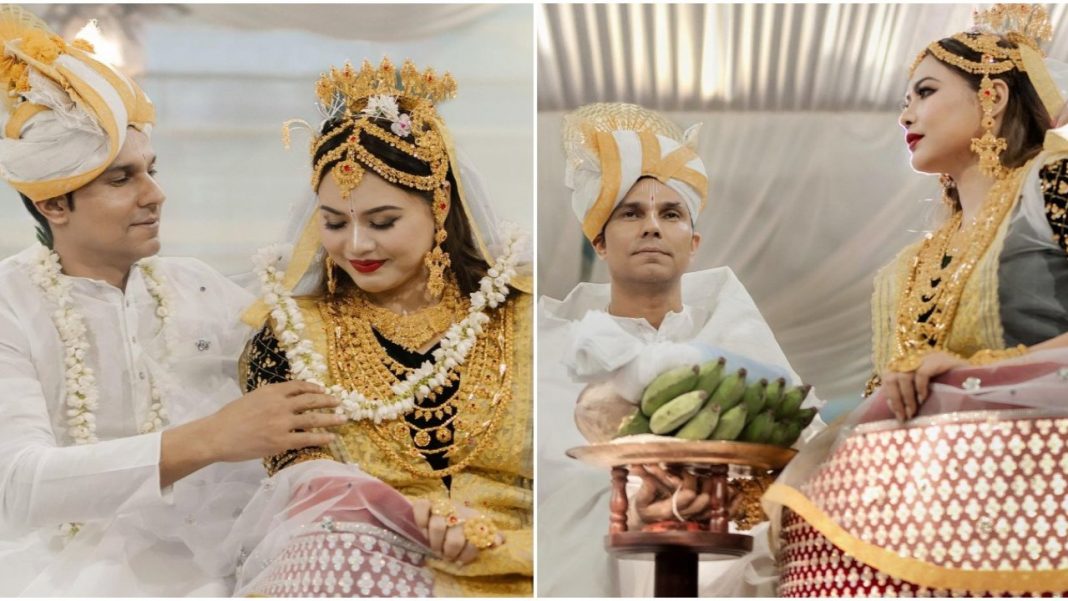In the picturesque setting of Imphal, Manipur, Randeep Hooda and Lin Laishram exchanged vows in a radiant Meitei wedding. The duo unveiled captivating snapshots of their special day, mesmerizing fans with their subtle grace and otherworldly presence. Join us in unraveling the enigma of their wedding attire, exploring the intricate details of their jewelry and clothing, and gaining insights into the meaningful rituals that added a touch of magic to their unforgettable celebration.
Lin Laishram graced her wedding in the traditional Manipuri bridal attire, a homage to the Radha-Krishna dance, Rasleela. Central to her ensemble was the drum-like Potloi, intricately hand-embroidered and imbued with religious significance. A customary outfit for Meitei brides, the Potloi is a robust cylindrical skirt crafted from durable fabric and bamboo, adorned with embellishments and ornate laces. Stitched onto the bride an hour or two before the ceremony, Lin wore a maroon Potloi complemented by a striking heavy black blouse intricately embroidered in gold, known as resham fruit. She added the finishing touch to her bridal ensemble with a translucent ivory tulle veil.

Lin Laishram’s bridal jewelry radiated simplicity and tradition. She donned a long necklace called Likhom along with two essential sets, adhering to tradition. Her head was adorned with the beautifully embellished headgear, Maatha Patti, and the essential Kajenglei, a traditional Meitei headdress crown. Completing her bridal ensemble were large gold danglers that gracefully adorned her ears, while her hands sparkled with glitzy bangles and haath phools, bringing an elegant touch to her traditional bridal look.

The groom, Randeep Hooda, opted for simplicity and tradition in his attire. He wore a traditional white kurta and dhoti, complemented by a yellow headgear known as koyet. A plain white shawl, symbolizing the purity of marriage, was gracefully wrapped around him. In adherence to tradition, Randeep chose not to wear any jewelry, emphasizing the understated elegance of his attire in line with cultural customs.

Randeep and Lin both wore white clay or chandan (Sandalwood) tilaks, a customary practice. In line with Vaishnavite tradition, rooted in the worship of Lord Vishnu, both the bride and groom donned a patterned tilak drawn from the forehead to the tip of the nose. This symbolic mark held cultural significance, contributing to the traditional aura of the auspicious occasion.

The couple joyfully exchanged garlands during the wedding ceremony. In the Leilenga ritual, the bride personally weaves two garlands—one for herself and another for her soon-to-be husband. Using a specific flower locally known as Kundo, she crafts the garlands in the presence of a priest, who enchanted holy prayers for a blissful married life. The culmination of this ritual involved the exchange of these meticulously crafted garlands between the bride and groom.
ALSO READ: WATCH: Randeep Hooda and Lin Laishram tie knot in traditional Meitei ceremony in Imphal







